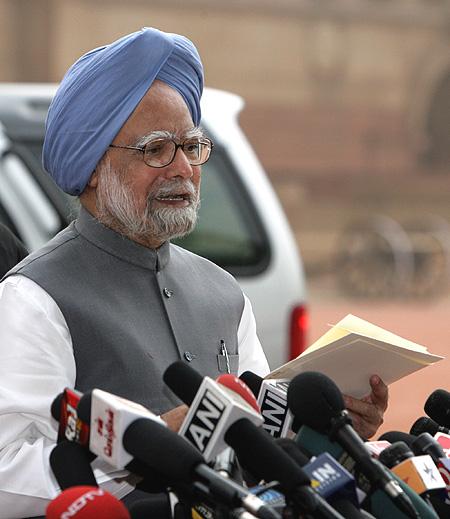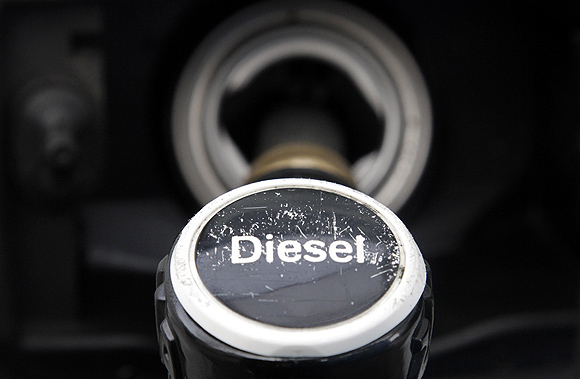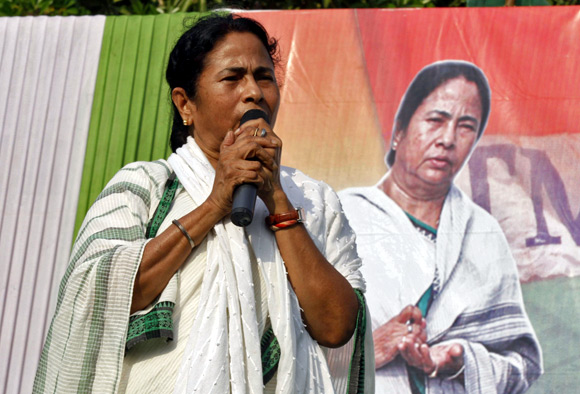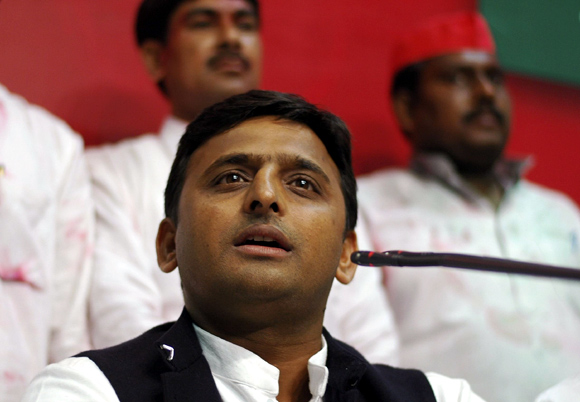The government may have plumped for FDI in multi-brand retail at this juncture because this is an issue which has also divided the opposition, believes Neerja Chowdhury
Why the Congress right now chose to pick on one of the most contentious issues -- to push forward the 'big bang' reforms that Dr Manmohan Singh has wanted to pursue -- is a moot question.
Foreign Direct Investment in multi-brand retail had made Congress's ally Trinamool Congress chief Mamata Banerjee see red last year when the then Finance Minister Pranab Mukherjee had announced the suspension of the decision till a consensus could be evolved, and the government was left with egg on its face.
It is far from a happy situation for any government when it is forced to backtrack publicly on a policy decision. As it is, the United Progressive Alliance's moral authority has seen a steady erosion over the last two years.
It is well known that the Bharatiya Janata Party and many opposition parties have been opposed to FDI in multi-brand retail because it hits hard at their constituencies. It is also well known that the Trinamool Congress and the Samajwadi Party, two of the Congress' main supporters, are opposed to it.
Click on NEXT for more...
Why the government took a calculated risk
And yet the prime minister chose to flag this decision as the most prominent one among the slew of measures to contain fiscal deficit and encourage foreign investment. He chose to do so along with an increase in the price of diesel, which was bound to provoke a howl of protest from most parties, inside and outside the ruling coaltion, given the cascading effect it would have on inflation, which has emerged as the most emotive electoral issue today.
There could be several reasons why the government chose to take what was clearly a calculated risk. One, buffeted as it has been by its allies and opponents alike, it wanted to regain political initiative and send the message across that it was on top of the situation and would not be pushed around anymore.
The prime minister let it be known that he was serious about pushing ahead with stalled economic reforms "at any cost". He is also believed to have told his colleagues during a meeting of the Cabinet Committee of Economic Affairs, where the decision was taken, that if the UPA had to go down, it was better if it went down fighting.
The PM's brave words were reminiscent of the steely stance Dr Singh had taken at the time of the India-United States nuclear agreement in 2008. With the party obviously backing him this time -- though Congress president Sonia Gandhi had reportedly wanted to know in a meeting of the party's core committee whether a hefty increase in the price of diesel was inevitable -- the government could not have moved ahead without doing some background work to ensure that it did not fall on the issue.
The body language of senior party leaders in recent days has not betrayed nervousness; instead they seemed to exude confidence that there was no threat to the government.
Click on NEXT for more...
Parties may not rock the UPA boat
Image: Dr Singh on the cover of 'Time' magazineThe government may have plumped for FDI in multi-brand retail at this juncture because this is an issue which has also divided the opposition. It may be a situation not unlike the one that prevailed at the time of the presidential polls, when some of the parties in the National Democratic Alliance had opted to support the UPA's presidential candidate.
Unlike the BJP, its ally Akali Dal favours the move. Another ally, the Shiv Sena, has already announced that it will not be taking part in the all-India bandh that the BJP and other parties have called on September 20 to protest against the recent measures.
The PM's move towards economic reforms was welcomed by the western world and by corporate India, which had criticised inaction on this front as 'policy paralysis' .
Highly critical articles had appeared in Time magazine, Washington Post and the Economist recently, criticising the paralysis.
Now that there is movement in this direction by the Manmohan Singh-led government, industrial circles can be expected to do their bit to persuade political parties to criticise the move, but not rock the UPA boat at this stage.
Click on NEXT for more...
Mamata will not withdraw her support in isolation
Image: Mamata BanerjeeThe government's confidence may have stemmed from the calculation that its allies and opponents may bark but not bite. Mamata Banerjee may withdraw her ministers from the UPA government -- if there is no rollback by Tuesday when her party is expected to take a final decision on the issue -- but she may not pull the plug.
That may be due to a variety of factors, the most important being the PM's thumbs up for a financial package for West Bengal, which she has been seeking since she came to power.
If Banerjee withdraws her party's support, and the government manages to survive, she will find herself isolated. She would neither like to be seen on the same side as the BJP nor give mixed signals that she is gravitating towards the NDA, given the support from the Muslim community she got in the assembly elections. She will need that again for the panchayat polls which are around the corner in West Bengal.
If Banerjee opts for withdrawal of support, she will only do so along with other regional forces that support the UPA government, and not in isolation. The same argument will apply also to the Samajwadi Party. Senior SP leader Ram Gopal Yadav has already indicated that his party was not planning to bring down the UPA government.
Click on NEXT for more...
Regional parties will seek another pound of flesh
Image: Akhilesh YadavThough Uttar Pradesh Chief Minister Akhilesh Yadav has made it clear that his government will not implement FDI in multi-brand retail in UP, he has left the decision of whether to support the UPA to his father.
Mulayam Singh, who has the sword of Central Bureau of Investigation's cases hanging over his head, is also looking for a financial package from the Centre to implement the populist measures the SP had promised before the elections, including an unemployment dole, laptops and tablets for the youth and money to girls who complete their schooling.
The SP is beginning to lose steam -- with cases of communal and party-related violence increasing in UP -- and it would like to re-seize the initiative before it goes for adventurism of any kind.
Bahujan Samaj Party chief Mayawati, on the other hand, has called a meeting of her party "to review its outside support" to the UPA after its "jan virodhi" (anti-people) policies. But she has called the meeting only on October 9, by which time the situation would have cooled down.
In all likelihood, regional parties will use the present situation as an opportunity to bargain with the government to extract one more pound of flesh in return for their support, but it is unlikely that they would deal it the fatal blow. This is expected to be one more issue which will lead to much sound and fury, but may not signify the end of the government at this stage.
Click on NEXT for more...






article